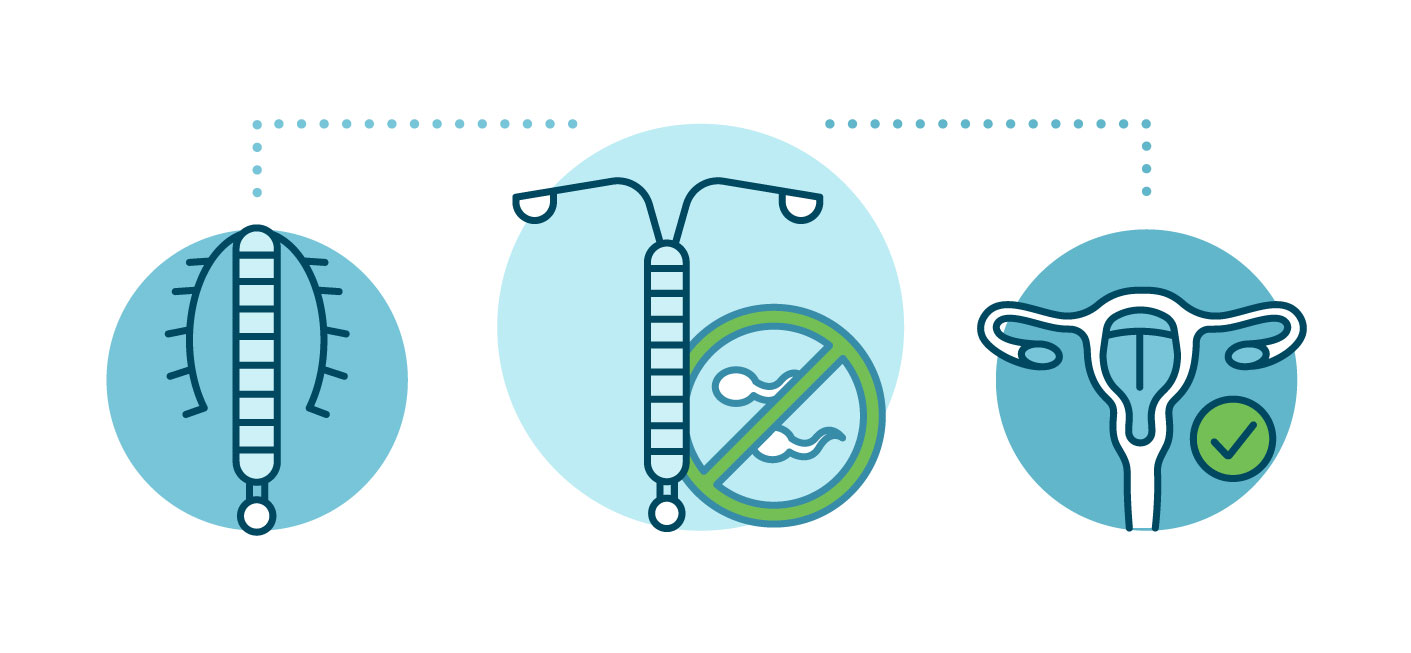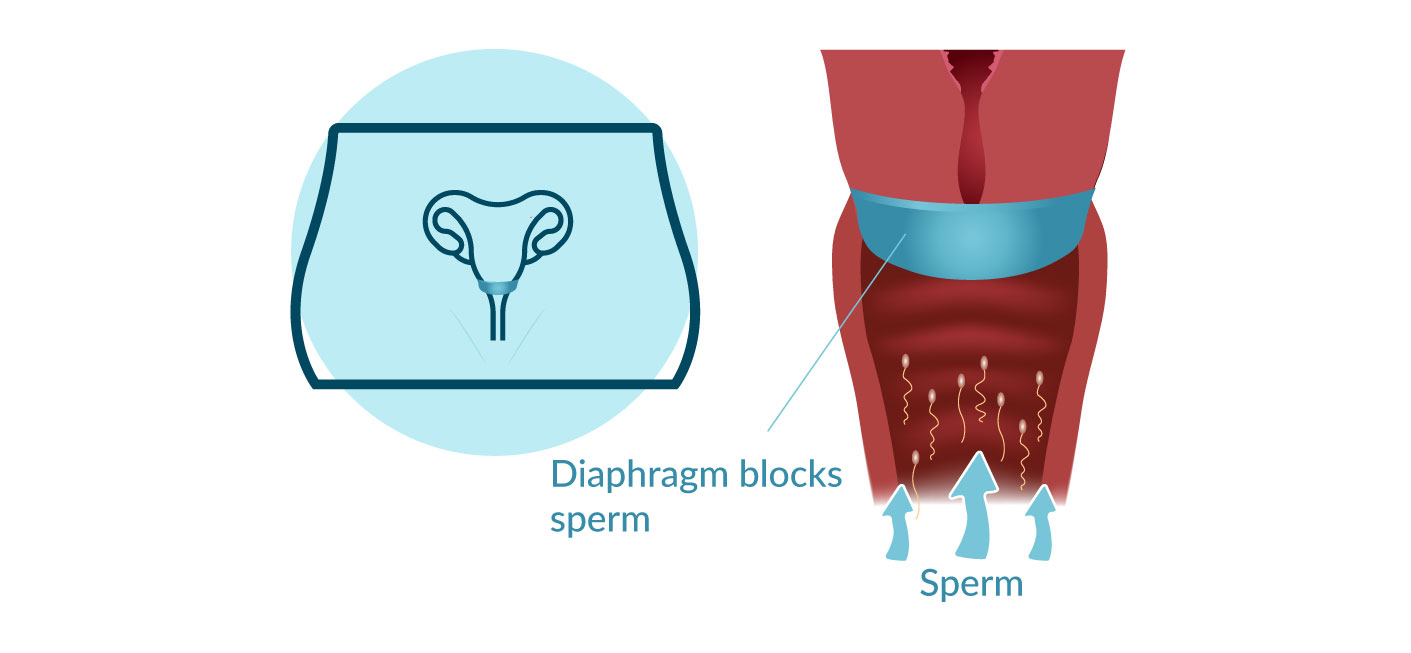According to The Family Planning Association of Hong Kong (FPAHK) survey of 2017 – the proportion of women who practised safe sex appeared to have dropped from 74.8% in 2012 to 66.7% in 2017.¹
Contraceptive counselling is essential for every woman, man and couple to consider the most appropriate and voluntarily informed choice of contraceptive methods.²
Most couples use contraceptives for birth control and family planning. But effective contraception also protects non-contraceptive sexual health-related issues³ such as Human Immunodeficiency Virus (HIV) and other Sexually Transmitted Infections (STIs), Reproductive Tract Infections (RTIs), unintended pregnancies or abortion.⁴
This blog will guide you to make an informed decision about the right contraceptive method for you. Depending on your health and circumstances, you should consult your healthcare provider to help you choose a method that suits you best.
Special Contraceptives Available at OT&P Clinics
Nexplanon (Progesterone-only Contraceptive Implant)
Nexplanon is a small flexible plastic rod that's placed under the skin in your upper arm by a doctor or nurse. This type of birth control lasts for 3 years.⁵
The implant steadily releases the hormone progestogen into your bloodstream, preventing an egg's release each month (ovulation). It also thickens the cervical mucus, which makes it more difficult for sperm to move through the cervix, and thins the lining of the womb so a fertilised egg is less likely to implant itself.⁵
It can be useful for women who can't use contraception that contains oestrogen. However, Nexplanon does not protect against sexually transmitted infections (STIs).⁵
Types of Contraceptives in Hong Kong
Condoms
Condoms effectively prevent conception and transmission of HIV and other STIs. These include gonorrhoea, chlamydia, trichomoniasis, genital ulcers such as herpes, syphilis and chancroid. Several studies suggest that consistent use of condoms also lowers the rate of cervical cancer.⁷
Condoms can be divided into male type and female type. Both types of condoms prevent sperm from entering the female uterus. In Hong Kong, the majority of condoms that are on sale are of the male type, made of latex.⁷
Male Condoms & Female Condoms
The male condom is a thin rubber sheath that fits over an erect penis during sexual intercourse.⁸ The female condom – also termed as an internal condom, is a soft, thin and lubricated polyurethane sheath placed inside the vagina before sexual intercourse.⁹
Both types of condoms are readily available from local drugstore chains, neighbourhood pharmacies, supermarkets and convenience stores. Several HIV/AIDS awareness groups and social hygiene clinics under the Hong Kong Department of Health provide free condoms to the general public, regardless of whether one is a Hong Kong resident. However, pre-booking with the organisation’s services is mandatory.
Oral Contraceptive Pills
Oral contraceptive pills, also termed birth control pills, contain synthetic hormones. They prevent pregnancy by one or more of the following mechanisms:¹⁰
- Preventing the ovaries from releasing an egg each month
- Suppressing the development of uterine lining to prevent implantation of an egg to the uterine lining
- Thickening cervical mucus to block sperm and egg from meeting.
There are two types of oral contraceptives in Hong Kong – Progestogen Only Pills (POP) and Combined Oral Contraceptives (COC). They come in 21-day and 28-day packs.¹¹
Progestogen Only Pills (POP) and Combined Oral Contraceptives (COC)
Progestogen Only Pills (POP) contain one hormone called progestogen. Combined Oral Contraceptives (COC) have two hormones called oestrogen and progestogen.¹¹ The hormones within these two types of oral contraceptive pills are synthetic versions of these naturally occurring hormones.
Even though oral contraceptives do not require a doctor’s prescription and are readily available at local pharmacies, it is essential to consult a health practitioner before using any oral contraceptive, given that different types of oral pills have different types of hormones with varying side effects. You should follow the prescription timeline of these pills under the supervision of your gynaecologist to assess the suitability for continued use.
Emergency Contraception – the ‘Morning After Pill’
If you had sex without using a condom, missed more than one dose of your oral contraceptive pill, or had a contraceptive accident (such as a broken or slipped condom), emergency contraception is another method to prevent pregnancy.
‘Emergency Contraceptive Pills (ECPs), also termed as the ‘morning-after pill’ or ‘plan B’, either stop or delay the release of an ovum, thereby preventing fertilisation. This form of contraception is a backup, not a primary method of birth control. If a woman uses ECPs frequently, she is substantially more likely to become pregnant than if she uses regular contraceptives.’¹²
- Dr Zara Chan 陳駱靈岫, Specialist in Obstetrics and Gynaecology,OT&P Healthcare
You should consume ECPs within 72 or 120 hours (depending on the type of ECP) of unprotected sex.¹²Even though ECPs prevent most pregnancies, they are not 100% effective. Emergency contraceptives should not be used routinely to prevent pregnancy as they are less effective than regular contraceptives.¹³
Types of Emergency Contraceptive Pills (ECPs)
There are two types of ECPs, and they both require a doctor’s prescription: Ulipristal Acetate (UPA EC pill) and Progestogen EC pill (LNG EC pill). The ulipristal acetate (UPA) EC pill is effective when used within 120 hours after unprotected sex or contraceptive failure, whereas the progestogen (LNG) EC pill is effective within 72 hours. There is evidence to show that the sooner the contraception is taken after unprotected sex, the more effective it is.¹³
You cannot obtain ECPs over the counter in Hong Kong at local chemists. They must be prescribed by professional healthcare providers such as doctors in the private or public sector, the Family Planning Association of Hong Kong (FPAHK) or Maternal and Child Health Centre under the Department of Health.
Intrauterine Contraceptive Device (IUCD)

The Intrauterine Contraceptive Device (IUCD), commonly known as IUD, is a tiny device inserted inside a woman’s uterus. There are two types of IUD, namely hormonal (such as Mirena) and non-hormonal (such as ParaGard). Both types of IUDs prevent sperm from surviving in the uterus by triggering a local inflammatory reaction.¹⁴ This ensures the uterus becomes sperm-unfriendly. It is an effective long-term birth control method and does not interfere with intercourse.
A non-hormonal IUD is a T-shaped plastic and copper device. The copper produces an inflammatory reaction in the uterus, thereby stopping the implantation of a fertilised egg. Hormonal IUDs gradually release a type of hormone called progestin. While non-hormonal IUDs last 5 to 10 years, hormonal IUDs last for either 3 to 6 years.²
A trained healthcare professional must perform the procedure of IUD insertion. It is usually done during the first five days of a woman’s periodic cycle.¹⁵ If you desire pregnancy at a later stage, your doctor will remove the IUD.
Other types of Contraceptives in Hong Kong
Injectable Contraceptives
These are similar to oral contraceptive pills but in the form of injections. Like oral contraceptive pills, these injectables contain synthetic hormones. They are injected intramuscularly for contraception.
These injectables suppress ovulation and thicken the cervical mucus, making it impenetrable for sperm. These injections are most effective in the first seven days of your menses, providing immediate protection.
Your gynaecologist can consult on the associated timeline, as this injection must be given regularly and at fixed intervals without interruption.¹⁶
Diaphragm & Spermicidal Jelly

A diaphragm or cap is a barrier method of contraception. It is a dome-shaped soft rubber device that fits inside your vagina and prevents sperm from passing through the cervix (the entrance of the womb). You need to use it with a gel that kills sperm (spermicide).¹⁷
A diaphragm should only be used when having sex and should be left in for at least 6 hours after that.¹⁸ A doctor is required to examine and advise on the appropriate size of the diaphragm.
A diaphragm does not provide reliable protection against STIs.¹⁸
Spermicides
Spermicides can come in the form of foaming tablets, vaginal contraceptive film and sponge. They inactivate or kill the sperm before they can meet the eggs.¹⁹
Spermicide isn’t a very effective birth control method, and it does not protect against sexually transmitted infections (STIs).²⁰
Sterilisation
Sterilisation is a permanent contraception method, suitable for people who are sure they never want children or do not want any more children. Sterilisation is available for both women and men. Before you decide on sterilisation, you should contact an independent counsellor or talk to your gynaecologist.
Female Sterilisation
In women, fallopian tubes are surgically closed so that the eggs cannot travel down to meet the sperm.²¹
Male Sterilisation (Vasectomy)
A vasectomy is a minor surgical procedure that blocks the transmission of sperm out of the body. During sexual intercourse, ejaculation will still occur, but the semen will contain only seminal fluid and no sperm.²²
Vasectomy is not immediately effective after the operation because part of the male reproductive tract beyond the surgical cut still contains sperm. It may take up to twenty ejaculations to clear all the sperm.²²
It’s possible to have a vasectomy reversed. But the procedure isn’t always successful.²²
Contraception Effectiveness Chart
To fully understand the effectiveness of contraceptives for every type of birth control method, refer to the table below:²⁰
| Rate of Effectiveness | ||||
| Type of Birth Control | 99% | 98% | 95% | 92–96% |
| Barrier Method |
Nexplanon NuvaRing |
Male Condoms | Female Condoms |
Diaphragm Spermicides |
| Reversible Method |
IUDs
|
- | - | - |
| Hormonal Method | Injectables & Oral Contraceptives (POP & COC) | - |
- |
- |
| Emergency Method | - | ECPs | - | - |
| Permanent Method |
Male Sterilisation Female Sterilisation |
- | - | - |
Periodic Abstinence
Also termed fertility awareness or the rhythm period, this method’s principle is to avoid sexual intercourse around ovulation when the woman is most fertile. The main advantage of this method is that it is free from side effects.
This method is not the most reliable form of contraception, especially for women with irregular period cycles. One should not depend on this method entirely.
While all the contraceptive methods can prevent pregnancy, not all of them protect you against STIs. According to the FPAHK survey of 2017, male condoms remained the most commonly used contraceptive method. Oral contraceptive pills and intrauterine contraceptive devices (IUCD) were used by only 6.3% and 6.2%, respectively.¹ The right type of contraception is a personal choice, taking into account various factors.
Help at OT&P
OT&P Healthcare has a dedicated team of gynaecologists who can assist you in identifying the suitable contraception method for you. If you need in-depth contraceptive counselling, we are available to help. Book an appointment or call our registration desk to find out more.
References
¹ (2018). ‘FPAHK Released Findings on Family Planning Knowledge, Attitude and Practice in Hong Kong Survey 2017’. The Family Planning Association of Hong Kong (FPAHK). Dec 4. Available at:<https://www.famplan.org.hk/en/media-centre/press-releases/detail/fpahk-released-findings-on-family-planning-knowledge-attitude-and-practice-in-hong-kong-survey-2017>
² ‘Contraception’. Centers for Disease Control and Prevention (CDC). Available at: <https://www.cdc.gov/reproductivehealth/contraception/index.htm>
³ ‘Contraceptive Benefits and Risks’. National Center for Biotechnology Information (NCBI). Available at: <https://www.ncbi.nlm.nih.gov/books/NBK235069/>
⁴ (2006). ‘Sexual Health’. World Health Organisation (WHO). Available at: <https://www.who.int/health-topics/sexual-health#tab=tab_1>
⁵ ‘Contraceptive Implant.’ NHS. Available at:<https://www.nhs.uk/conditions/contraception/contraceptive-implant/>
⁶ ‘Vaginal Ring’. NHS. Available at:<https://www.nhs.uk/conditions/contraception/vaginal-ring/>
⁷ ’Use a condom for safer sex guidebook’. Red Ribbon Centre by the Department of Health. Available at: <https://www.rrc.gov.hk/english/rrcprodbk10.html>
⁸ ‘Male Condom’. The Family Planning Association of Hong Kong. Available at:<https://www.famplan.org.hk/en/health-info/contraceptive-methods/male-condom>
⁹ ‘Female Condom’. The Family Planning Association of Hong Kong. Available at <https://www.famplan.org.hk/en/health-info/contraceptive-methods/female-condom>
¹⁰ ’Oral Contraceptives’. Drug Office by Department of Health. Available at: <https://www.drugoffice.gov.hk/eps/do/en/consumer/news_informations/dm_10.html>
¹¹ ’Contraceptive Methods’. The Family Planning Association of Hong Kong (FPAHK). Available at: <https://www.famplan.org.hk/en/health-info/contraceptive-methods/>
¹² Dr Zara Chan. ‘Your Practical, Doctor-Reviewed Guide to Morning After Pills in Hong Kong’. Healthy Matters. Available at: <https://www.healthymatters.com.hk/where-and-how-to-get-the-morning-after-pill-in-hong-kong/>
¹³ ’Emergency Contraception’. The Family Planning Association of Hong Kong. Available at <https://www.famplan.org.hk/en/health-info/contraceptive-methods/emergency-contraception>
¹⁴ ‘Copper Intrauterine Device’. The Embryo Project Encyclopedia. Available at:<https://embryo.asu.edu/pages/copper-intrauterine-device-iud>
¹⁵ ’Intra-uterine Contraceptive Device (IUCD)’. The Family Planning Association of Hong Kong. Available at <https://www.famplan.org.hk/en/health-info/contraceptive-methods/intra-uterine-contraceptive-device-iucd>
¹⁶ ’Injectable Contraceptives’. The Family Planning Association of Hong Kong. Available at:<https://www.famplan.org.hk/en/health-info/contraceptive-methods/injectable-contraceptives>
¹⁷ ’Diaphragm’. The Family Planning Association of Hong Kong. Available at:<https://www.famplan.org.hk/en/health-info/contraceptive-methods/diaphragm>
¹⁸ ’Your Contraception Guide.’ NHS. Available at:<https://www.nhs.uk/conditions/contraception/>
¹⁹ ’Spermicides’. The Family Planning Association of Hong Kong. Available at:<https://www.famplan.org.hk/en/health-info/contraceptive-methods/spermicides>
²⁰ ’The Different Types of Contraception’. NHS Inform. Available at: <https://www.nhsinform.scot/healthy-living/contraception/getting-started/the-different-types-of-contraception>
²¹ ’Female Sterilization’. The Family Planning Association of Hong Kong. Available at:<https://www.famplan.org.hk/en/health-info/contraceptive-methods/female-sterilization>
²² ’Male Sterilization’. The Family Planning Association of Hong Kong. Available at:<https://www.famplan.org.hk/en/health-info/contraceptive-methods/male-sterilization-vasectomy>
 Central General Practice
Central General Practice
 Repulse Bay
Repulse Bay
 Clearwater Bay
Clearwater Bay
 BodyWorX Clinic
BodyWorX Clinic
 Central Specialist Clinic
Central Specialist Clinic
 MindWorX Clinic
MindWorX Clinic
 Partner Clinics
Partner Clinics
 Family Clinic
Family Clinic
 OT&P Annerley Midwives Clinic
OT&P Annerley Midwives Clinic
 WellWorX Clinic
WellWorX Clinic








